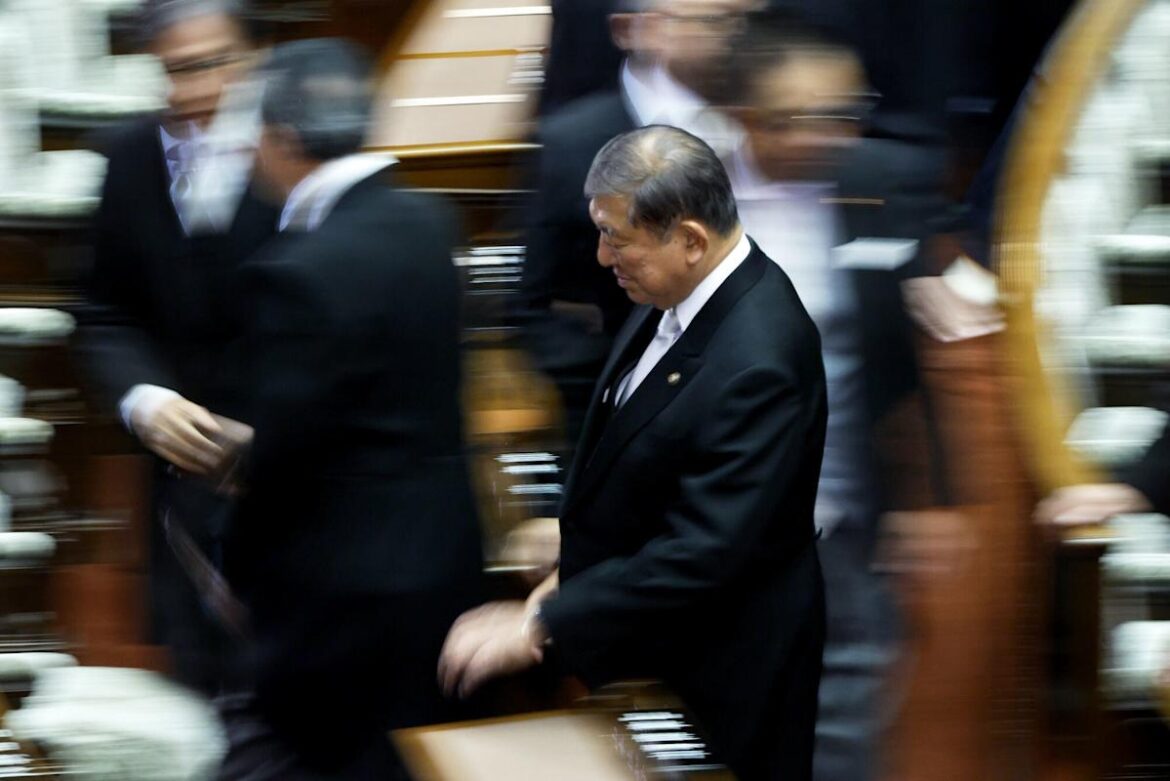(Bloomberg) — The trade deal reached last month between the US and Japan was “win-win” for both countries, but implementing the terms of the pact may be a bigger challenge than reaching the deal, Japanese Prime Minister Shigeru Ishiba said.
Most Read from Bloomberg
“Some say that carrying the trade deal out is harder than agreeing on it. I humbly seek your continued support on this,” Ishiba said Monday in response to questions in parliament.
At the same session of parliament, Japan’s chief trade negotiator Ryosei Akazawa acknowledged criticism over the lack of having anything in writing.
“It’s my understanding having something on paper would be helpful,” Akazawa said, adding that there’s also nothing in writing related to Washington’s deals with the EU and South Korea.
The comments underscore the vast uncertainties related to the raft of global trade deals even after a deadline for higher tariffs was reached Aug. 1. Washington agreed to assess a 15% across-the-board levy on imports from Japan, a lower rate than the previously threatened 25%. The fate of auto tariffs is still unclear, with the US yet to implement an agreed cut to 15%.
Ishiba, under pressure after last month’s setback in the upper house election, has vowed to stay on as premier in order to ensure the trade deal is fully implemented. A few days after the election, Ishiba secured the surprise trade deal that delivered relatively better results to Japan compared with other nations.
The car tariffs, currently at 27.5% including a pre-existing 2.5% rate, have delivered a major blow to the Japanese economy as the sector is the biggest source of exports to the US and accounts for roughly 10% of economic output.
“We should first devote all our efforts to properly lowering automobile tariffs, which are most closely related to our national interests, and to getting a presidential order issued,” Ishiba said. The prime minister added that he recognized the need to meet with Trump in person to ensure the implementation of the auto deal.
Referring to the $550 billion US investment plan that’s a key part of the deal, Ishiba said that spending decisions will be made by the private sector, and the government has no authority to compel companies to sign contracts. He added that the US and Japan can collaborate across a wide range of sectors, including shipbuilding, an area where South Korea could also be involved.
Story Continues
Support for Ishiba’s cabinet rose 4 percentage points to 36.8% in a poll conducted over the weekend by JNN. The rate for Ishiba’s Liberal Democratic Party nudged lower from the previous month’s survey to 20.4%, while the right-wing Sanseito party saw its support rise 4 points to 10.2%, making it the second most-popular party.
Pressed on when the government might implement subsidies meant to help households cope with soaring living costs, Ishiba said it would depend on discussions with other parties.
The setback in last month’s election resulted in the government losing its majority in the upper house — after it lost its lower house majority last October. It’s the first time in 70 years an LDP-led coalition is having to govern without a majority in either house of parliament.
“I believe it’s our administration’s responsibility to properly follow through on the issues we’ve been working on and bring them to a clear resolution,” Ishiba said. He declined to comment on the timing of a potential resignation.
–With assistance from Erica Yokoyama.
(Updates with additional comments.)
Most Read from Bloomberg Businessweek
©2025 Bloomberg L.P.


AloJapan.com